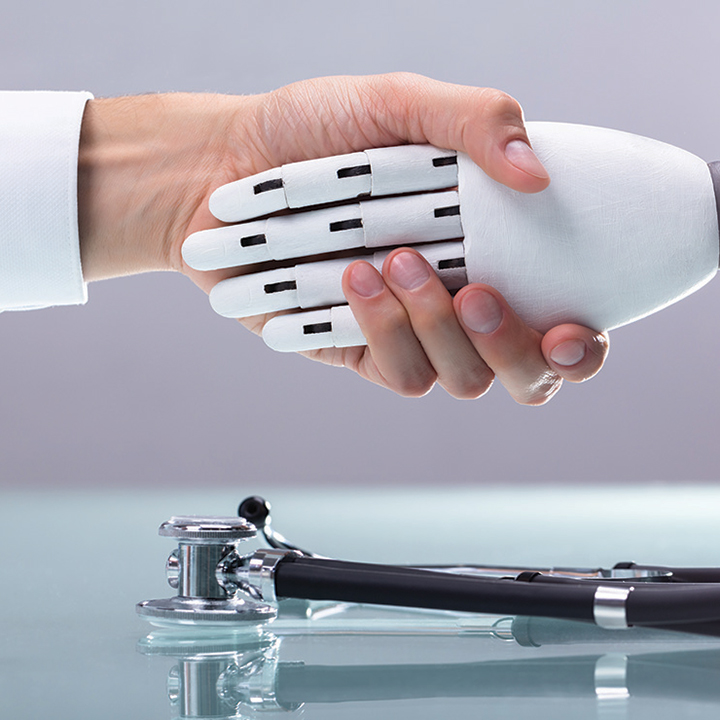DARQ technologies — a collective acronym for distributed ledger technology, artificial intelligence, extended reality and quantum computing — will have a transformational or extensive impact on their organizations, according to 68% of healthcare executives surveyed by Accenture.
It also found that 68% of the healthcare executives said that every employee in their organizations will be empowered with a team of bots to accomplish their work within the next three years.
AI will alter the HR function

Nearly all of chief human resources officers and HR execs, 94%, believe artificial intelligence will alter the HR function, according to a survey by executive search firm Boyden.
Among the execs, 42% believe AI will speed up hiring and 41% believe it will improve onboarding.
Looking at responses from executives in the industrial and energy sectors, 67% see AI replacing human recruiters at least after initial job interviews.
“AI, as a candidate processing and selection tool, will undoubtedly transform the way we hire people in the future,” said Francesca d’Arcangeli, global leader, industrial practice, and managing partner at Boyden United Kingdom.
However, 61% say hiring people with the right AI skill sets is a challenge, and 60% are concerned about keeping up with technological advancements.
The survey was based on a panel of 310 CHROs, senior HR executives and other HR decision-makers in the US, Germany, UK, Canada, Mexico, Brazil and Australia.
CIOs say 14% of workers to be replaced by AI

CIOs believe 14% of their workforce will be replaced by artificial intelligence or automation within five years, according to CIOs interviewed for the 2019 Harvey Nash/ KPMG CIO Survey released by IT staffing firm Harvey Nash Inc.
However, the industries where CIOs believe the highest portion of their workforces could be replaced include financial services, manufacturing/automotive, healthcare and telecommunications. CIOs estimated that 16% in each of the industries’ workforces could be replaced.
The IT skills shortage is at an alltime high, according to the report. It found that 67% of CIOs said the skills shortage prevents their organizations from keeping up with the pace of change. That’s up from 65% in a similar survey for 2018 and 62% in 2017.
It found that younger and smaller organizations are less likely to have a skills shortage while older and larger ones are more likely to face one.
One of the reasons, according to the report, is that technology professionals value innovative projects and learning new skills above other things including salary and job security. Smaller organizations appear more able to offer the innovation and pathway to learning new technologies.
Clicks on job ads can show direction of wages

Clicks on job ads can help show which areas the labor market is tightest in and where wages will be going up, according to an economic letter written by Central Bank of Ireland Economist Reamonn Lydon and Indeed Economist Pawel Adrjan who studied the Irish labor market.
Tightness is the relative balance between employer demand and supply of workers, according to the report. One of the ideas behind tightness is the tighter the labor market, the more bargaining power shifts to employees and wages increase.
It found “advertised salaries are significantly higher in jobs that receive fewer clicks, as this indicates that the supply of potential workers is low. In addition, salary growth tends to be higher in occupations where the aggregate number of clicks is low relative to the total number of jobs,” according to the Central Bank of Ireland.
The study analyzed 50,000 online job postings on Indeed.ie.







